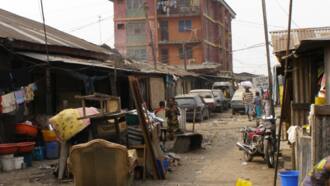10 problems of road transportation and solutions in Nigeria
The government should urgently look into problems of road transportation in Nigeria. It is among the most affected means of movement in the country. A poor road transportation system slows a nation's economic, cultural, and social development.

Source: UGC
Road transportation enhances cultural, economic, and social interactions by connecting people and places. For instance, the nation's GDP and revenue decrease when people, goods, and services cannot move from one location to another on time.
Problems of road transportation in Nigeria
Nigeria's transportation system includes road, railway, air, and sea. Most Nigerians use road transport because vehicles are cheaper than aeroplanes, trains and ships, faster than trains and ships, and the most accessible and convenient for short-distance journeys.
Anyone who has spent about six months in this country can easily list and explain the problems facing road transportation in Nigeria. People encounter these problems daily as they commute to school, work, recreational facilities, etc., when moving their goods and products, and so on. Below are 10 critical problems of road transportation in Nigeria.
1. Poor road transport infrastructure
Poor infrastructure is one of the main problems of road transport in Nigeria. Most paved road networks have poor drainage systems and have lost their asphalt surface.
It is difficult to drive on roads with uneven surfaces and potholes, especially during rainy seasons. In addition, some roads get flooded and no longer have bumps. As a result, the poor state of roads in Nigeria leads to road accidents.
2. Government officials and contractors syphoning funds allocated to roads
Nigeria has the largest highway and road network in Africa but still needs much improvement to reach the world-class level. The government can achieve this if it eliminates the high level of corruption in the transport sector.
Some officials the federal government puts in charge of road construction contracts divert most money for personal use and award contracts to dubious construction companies. Eventually, most roads were constructed with low-quality materials because of corruption.
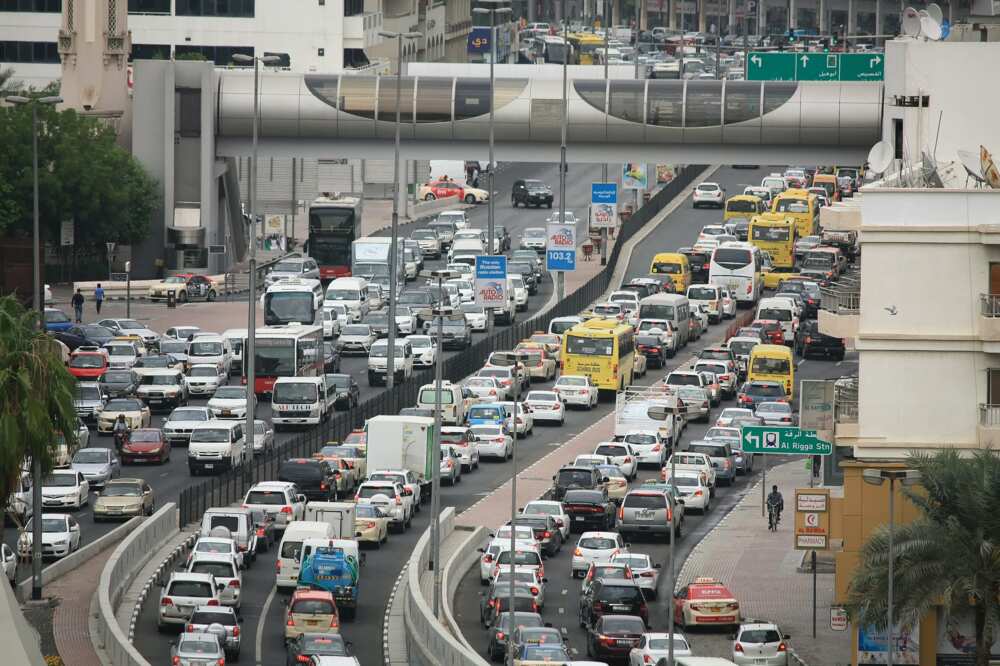
Source: UGC
3. Poor road maintenance
Poor road maintenance highly contributes to poor road transport infrastructure in Nigeria. Most main road networks made in the 80s and early 90s are old and worn out, but the government keeps turning a blind eye to them.
Poor maintenance, low-quality materials used for repairs, and the government allocating insufficient money for roads aggravate their conditions. Additionally, the government rarely repairs roads unless they are completely damaged, and corruption leads to poor repair work.
4. Few skilled people and low levels of technology in road construction
Very few cities in Nigeria have modern smart highways, underground tunnels, footbridges, flyovers, advanced traffic management systems, intelligent transport management solutions, project monitoring information systems, etc.
The country lacks skilled human resources and funds to invest in advanced technology for building roads. Most road contractors in Nigeria and available technology build Low-volume roads (LVR). These are unsealed gravel and earth roads connecting rural communities with the strategic road network and vital public services such as schools, hospitals, farms and markets.
5. Road congestion due to urbanization and overpopulation
Many people move from rural to urban areas in search of jobs, better education, business opportunities, health services, etc., thus causing overpopulation in the cities and towns. About 90% of passenger and freight transportation activities in Nigeria's urban centres use roads.
The demand for road transportation, therefore, exceeds the capacity road networks can accommodate. Eventually, people must be patient with long traffic, especially during peak hours (morning and evening). The heavy traffic congestion leads to accidents and damage roads shortly after construction or repairs.
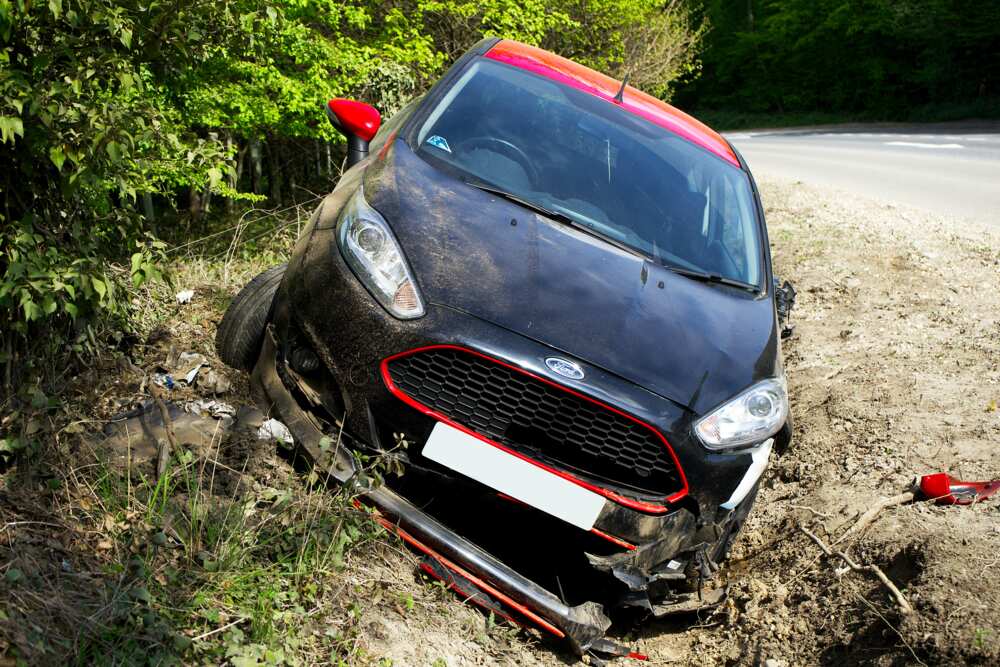
Source: UGC
6. A high rate of road accidents
The high rate of road fatalities is another problem facing road transportation in Nigeria. Poorly constructed/maintained roads, ongoing & abandoned road repair/construction sites and traffic jams are some of the country's main causes of road accidents. Other causes are reckless driving, bad weather, complex terrains, etc.
7. Rising transport costs and declining fuel reserves
The skyrocketing cost of transportation is devastating to many. Private investors have to keep up with the rising cost of keeping fleets on the road due to the ongoing economic challenges.
Fuel prices have not stopped rising since COVID-19 struck the world, and declining fuel reserves are also a global concern. Investors transfer these high costs to their customers. As a result, bus fare is higher than ever and hiring a truck is financially strenuous.
8. Insufficient and expensive alternative means of transportation
Nigeria should have enough alternative means of transportation that are affordable to most people. The government should invest in modern electric trains, build ports near lakes, create more local and international airports, and ensure people can afford to use them.
Demand for road transport is low in developing countries because they simultaneously use railway, sea, and air transport. Underground railways (subways) are also common in developed countries.
Developed countries use railway transport for heavy loads to reduce road damage and the dangers trucks pose to other motorists. Nigeria should implement the same to reduce road demand and ease traffic congestion.

Source: UGC
9. High crime rates on roads
There is high insecurity on Nigerian roads because of a flourishing black market for cheap stolen cars in West Africa. Some highly organized gangs have gone as far as selling cars stolen from developed countries.
Therefore, motorists are skeptical when driving on lonely roads and at night. Additionally, one should reconsider buying a second-hand car.
A CBC documentary revealed a thriving marketplace for stolen Canadian vehicles in West Africa. The documentary focused on Lagos in Nigeria. Some of the most stolen vehicles include the Honda CR-V, Toyota Highlander, Lexus RX and Ford F-150.
10. Increasing environmental pollution by vehicles
Road transport in Nigeria is a major contributor to air and noise pollution. Air pollution threatens the health and quality of life of motorists and people. It comes from automobile carbon monoxide, hydrocarbons, lead, and nitrogen emissions. Meanwhile, noise from cars arises from honking and noisy touts.
How can problems of road transportation in Nigeria be solved?
Below are some solutions to these problems:
- The government should combat corruption in the road transport sector. It should have strict punishments for officials who embezzle money allocated to roads and companies that build poor roads.
- The government frequently repair roads before damages worsen to avoid high maintenance and repair costs.
- Private investors and the government should invest in alternative modes of transport like aeroplanes, railways, boats, and ships and encourage people to use them to reduce road demand and traffic congestion.
- The private sector and the government should work together to reduce air pollution caused by motorists. For instance, the government can help private investors purchase electric fleets and public vehicles.
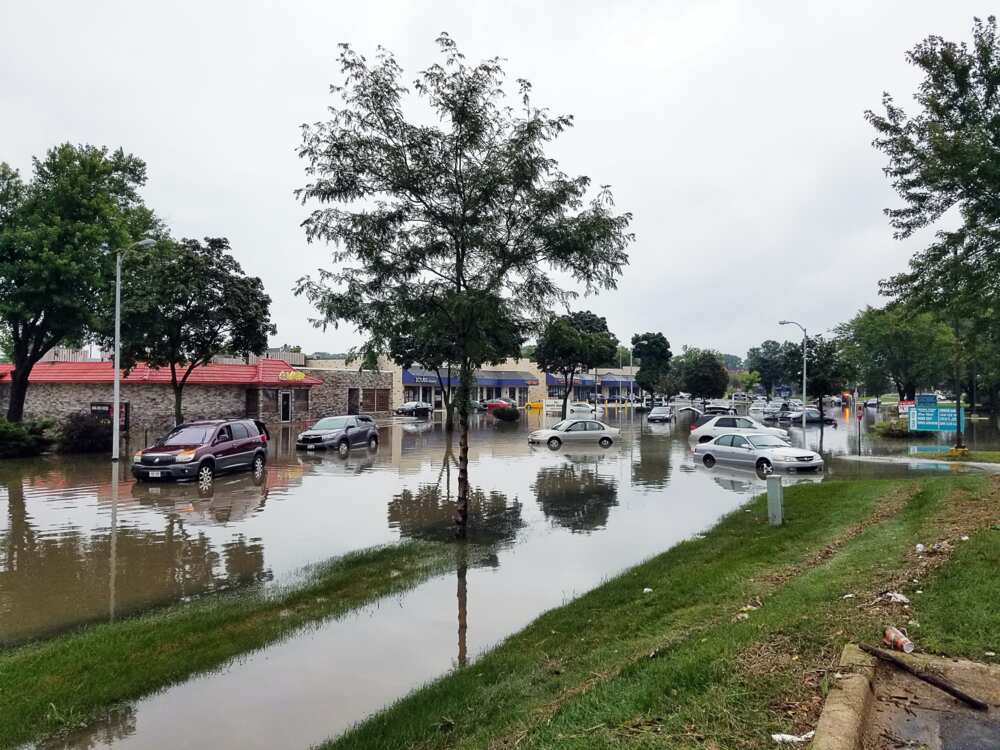
Source: UGC
- Government should help higher learning institutions invest in quality learning and training resources for road construction engineers and other experts in this sector.
- The government should provide more security on roads for motorists. For instance, there should be lights, enough police checkpoints, CCTV cameras, and other security measures on major highways.
- Nigerians should encourage themselves to use public transport more than private cars to reduce traffic jams and air pollution.
- Traffic tickets, speed limit policies, bumps, and traffic lights can help reduce road accidents by controlling motorists when there is road congestion.
- The governments should concentrate on developing quality and modern roads that last long. Modern technology and skills will help them construct proper drainage facilities, footbridges, underground tunnels, flyovers, and other modern infrastructure on roads.
- The government should have strict laws against noise pollution to stop noisy touts, loud music in cars, and unnecessary honking. Municipal officials can help the federal government implement anti-noise pollution policies.
What are the problems of transportation in Nigeria?
The top 10 problems of land transportation in Nigeria are:
- Poor road transport infrastructure.
- Government officials and contractors syphon funds allocated to roads.
- Poor road maintenance.
- Inadequate skilled manpower and low levels of technology in road construction.
- Road congestion due to urbanization and overpopulation.
- A high rate of road accidents.
- Rising transport costs and declining fuel reserves.
- Insufficient and expensive alternative means of transportation.
- High crime rates on roads.
- Increasing environmental pollution by vehicles.
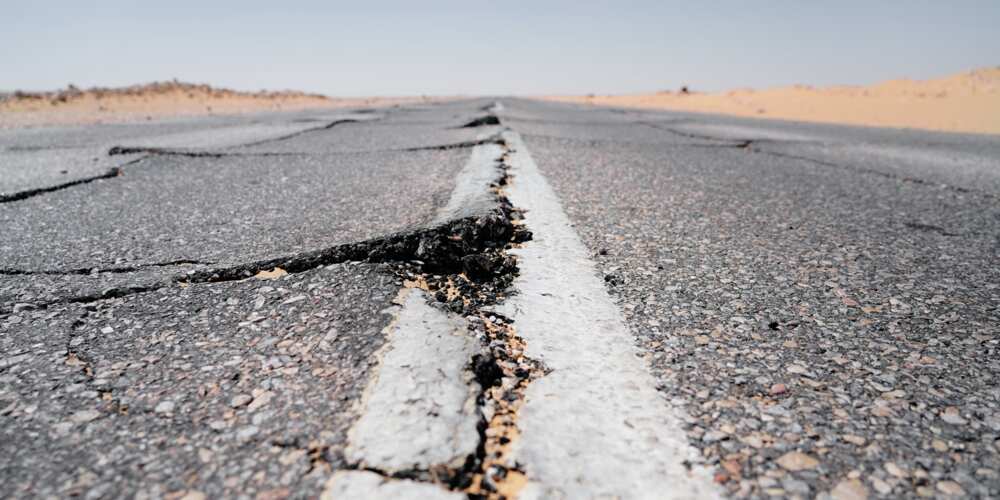
Source: UGC
What is the biggest transportation problem?
The main problem of land transportation in Nigeria is government officials and contractors stealing funds allocated to roads.
What is the problem with modern transportation?
Some of the problems of modern transportation around the world include:
- Traffic insecurity like pickpocketing in public vehicles and carjacking.
- Declining fuel reserves because the more oil and gas companies mine crude oil, the more it reduces.
- Harsh weather conditions like storms, floods, and snow make driving difficult.
- Traffic congestion makes it difficult for people to arrive at their destinations on time.
- Inadequate parking space in major cities.
- Insufficient space for cyclists and pedestrians.
- An increase in cheap vehicles that do not guarantee people enough protection when encountering road accidents.
- Overloading and overspeeding increase road accidents.
The state of road transportation in Nigeria is a reflection of how far Nigeria has come as a country. If the country is going to move forward and experience growth in every aspect, then the problems of road transportation in Nigeria must be taken seriously and tackled both by the government and the private sector. As it is often said, Nigeria has all the potential needed to overcome all these challenges, it is just the willingness and readiness that is required of us.
READ ALSO: List of collapsed federal government roads in southeast
Legit.ng also shared an insightful list of collapsed government roads in the southeast. Everyone should be careful when using these roads when driving, cycling or walking.
The people are infuriated by the poor state of these roads and blame the government for neglecting their road transportation needs. These roads pose a grave danger to millions of people who use them.
Source: Legit.ng




